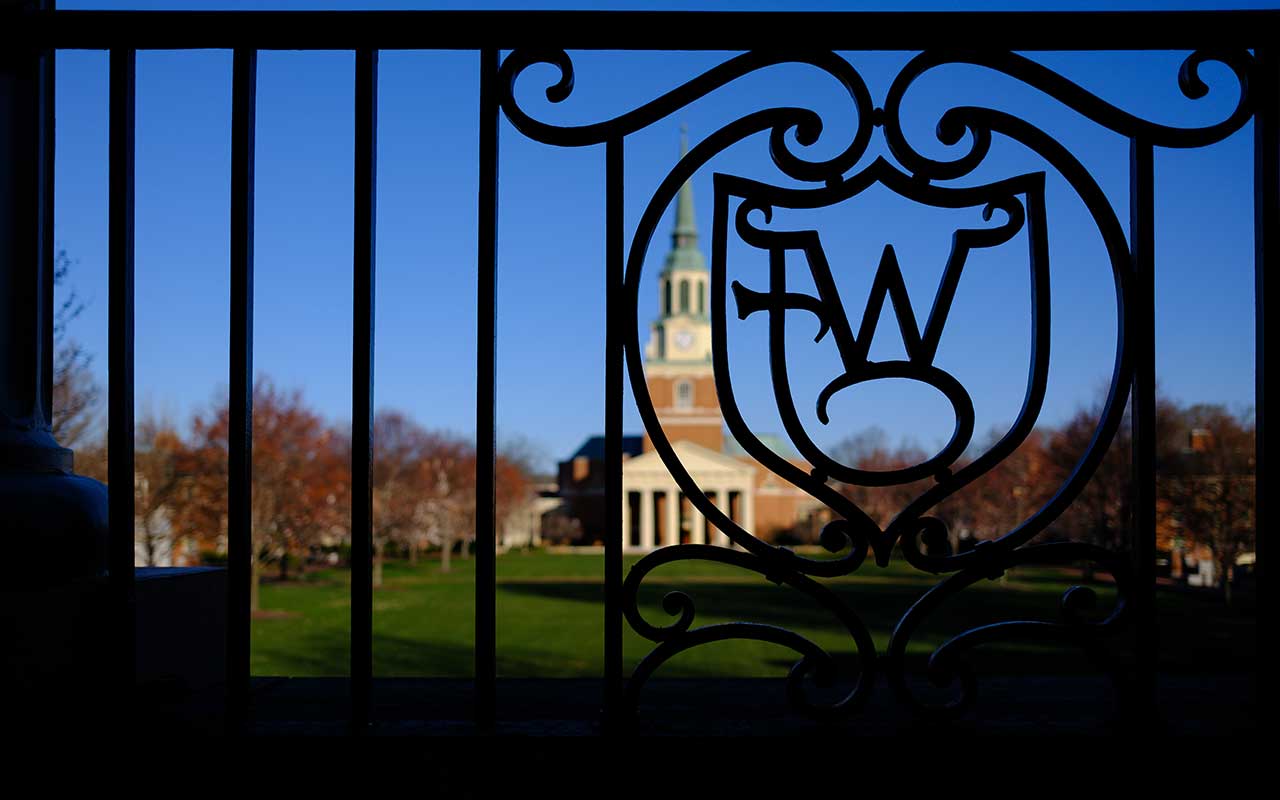Remembering the Winston-Salem sit-in
On Feb. 23, 1960, a group of Wake Forest students walked into the Woolworth’s in downtown Winston-Salem and joined students from Winston-Salem State Teachers College to protest segregated lunch counters.
Twenty-one students were arrested that day — 10 white students from Wake Forest and 11 black students from Winston-Salem State. The students’ non-violent protest, along with other protests in Winston-Salem, led to the desegregation of the city’s restaurants and lunch counters on May 23 of that year.
The sit-in at the Woolworth’s in Winston-Salem began Feb. 8, a week after the more famous Greensboro sit-in, but a successful resolution came first in Winston-Salem. The Winston-Salem sit-ins began when Carl Matthews sat down at the downtown Kress lunch counter. He was later joined by students from Winston-Salem State and Atkins High School and then by the Wake Forest students.
George Williamson (’61), who was among the Wake Forest participants, remembers seeing media coverage of the Feb. 1 Greensboro sit-in. “I saw those four guys in Greensboro on my TV, and they were my age and they were in college and they were only 30 miles away. I remember one of them saying “it isn’t fair.’ We talked about it in my ethics class the next day and it set me to thinking.”
When a friend asked him to join the group going to Woolworth’s, he went along.
Another alumnus, Bill Stevens (’60), also remembers talking about the Greensboro sit-in during a class with G. McLeod Bryan. “Some of the students thought we might like to participate in something like that,” Stevens said.
He, his fiance Margaret Anne Dutton (’60), and a few others met with Winston-Salem State students to make plans a week or so before Feb. 23. The white students agreed to walk in side-by-side with the black students to sit at the lunch counter.
In a 2000 interview, Bryan, professor emeritus of Christian Ethics, said he “wasn’t too surprised when they were engaged in it. They were in many ways the kind of student that was seeking a wider vision and perspective on life… What got them to leave the campus and go to the streets in civil disobedience was a sense of injustice and unfairness.”
Another Wake Forest student at the time, Joel Stegall (’61), wasn’t one of the protesters, but remembers his roommate and friends preparing for it. “I recall coming back to my dorm room one night and found the suite was quiet and dark — highly unusual. Finding one of the doors slightly ajar, I poked my head in to find a room dimly lit and full of guys, white and black, friends I knew well and some I’d never seen. I asked what was going on. Someone (probably my roommate, Frank Glenn) said they were planning to shake things up downtown with a protest.
“Looking back, I regret that I did not summon the courage to join them. Truthfully, I was frightened. It was a historic event with ramifications far beyond what any of us realized at the time. Remembering the racial climate at the time, I think the Woolworth’s sit-in was a historical marker of which Wake Forest should be proud.”
Jefferson D. Diggs III, one of the protestors from Winston-Salem State, said in a 2001 documentary about the protest: “That was a turning point in the whole movement. It was no longer just a bunch of students from Winston-Salem State Teachers College or a bunch of Northern agitators, these were their own kids, their own sons and daughters and I think that it changed the consciousness of the entire city and the entire country. People began to look at it that it was no longer a matter of “other,’ but of “us’.”
The documentary, “I’m Not my Brother’s Keeper: Leadership and Civil Rights in Winston-Salem,” was produced by two Wake Forest professors, Mary Dalton and Susan Faust.
“I was drawn to this story because it is a story of racial unity and of students making a difference,” said Dalton, an associate professor of communication. “By choosing to walk into a department store together and sit at a lunch counter as peers — on the surface a simple act — these students ultimately changed the way we live in Winston-Salem.”
Categories: Campus Life, Community Impact, Experiential Learning
Media Contact
Wake Forest News
media@wfu.edu
336.758.5237



